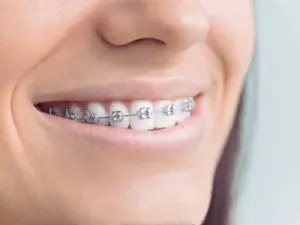For musicians, especially those who play wind instruments, sing, or even play guitar, their mouth and jaw play a crucial role in their performance. If you’re a musician considering braces or Invisalign, you may have concerns about how orthodontic treatment could affect your ability to play or sing comfortably.
At Robert Stoner Orthodontics, we understand that your music is part of who you are, and we’re here to help ensure that your orthodontic treatment supports—not hinders—your craft. Whether you’re a brass player, woodwind musician, singer, or guitarist, here’s what you need to know about orthodontics and musicianship.
Braces & Wind Instrument Players: Adjusting to the Change
If you play a brass (trumpet, trombone, French horn) or woodwind instrument (flute, clarinet, saxophone), your lips and teeth are essential for proper embouchure and tone production. Braces can introduce some challenges, but with practice and adjustments, most musicians adapt successfully.
What to expect:
- Increased Pressure on the Lips – Metal brackets press against the inside of the lips, which can cause discomfort when playing.
- Changes in Airflow and Embouchure – Braces slightly alter how air moves through the mouth, which can affect tone and articulation.
- Adjustment Period – It may take a few weeks of practice to fully adapt to playing with braces.
Tips for wind and brass players with braces:
- Use Orthodontic Wax – Applying wax over brackets can reduce irritation and make playing more comfortable.
- Experiment with Airflow – You may need to adjust how you direct air through the instrument to maintain your usual tone.
- Try Mouthpiece Modifications – Some musicians find that adjusting their mouthpiece or switching to a softer reed helps.
- Be Patient – The initial adjustment period can be frustrating, but consistent practice will help you adapt.
Brass players tend to experience more difficulty than woodwind players, since their embouchure involves direct lip pressure against metal braces. If you play trumpet, trombone, or tuba, allow extra time to adapt.
Singers & Vocalists: Will Braces Affect Your Voice?
Singers rely on their tongue, lips, and airflow to produce clear, resonant tones. While braces don’t directly affect the vocal cords, they can temporarily alter:
- Articulation and Pronunciation – Your tongue and lips may need time to adjust to the new space in your mouth.
- Mouth Positioning – Braces can change how you form vowels and consonants, especially “S” and “T” sounds.
- Jaw and Lip Tension – Some singers report mild jaw fatigue or discomfort when first adjusting to braces.
Tips for singers with braces:
- Practice Diction Exercises – Focus on enunciation drills to adjust to the feeling of braces.
- Stay Hydrated – Braces can cause dry mouth, which affects vocal tone. Drink plenty of water.
- Use Lip and Jaw Relaxation Techniques – Reduce tension by practicing gentle stretching exercises before singing.
Most vocalists find that after a short adjustment period, their singing voice returns to normal, and in some cases, improved dental alignment may even enhance resonance and projection.
Guitarists & Orthodontics: The Connection Between Jaw & Posture
At first glance, it might seem like braces wouldn’t affect guitarists, but jaw alignment and posture can impact playing technique and endurance.
- Jaw Fatigue and Tension – If you experience TMJ issues or bite misalignment, long practice sessions can lead to jaw discomfort or headaches.
- Breathing and Posture – Correcting bite alignment with orthodontic treatment can improve airflow and overall posture, making playing more comfortable.
- Neck and Shoulder Alignment – A well-aligned jaw can contribute to better spinal alignment, reducing strain during long performances.
Tips for guitarists with braces:
- Monitor Your Posture – Pay attention to neck and jaw positioning while playing.
- Take Breaks if You Experience Tension – Stretching exercises can help relieve jaw and neck strain.
- Be Aware of Clenching – Some musicians unconsciously clench their jaw while concentrating—be mindful and relax when possible.
Braces vs. Invisalign: What’s Best for Musicians?
For musicians, Invisalign may offer some advantages over traditional braces, depending on the type of instrument played.
Invisalign benefits for musicians:
- No Metal Brackets or Wires – Reduces irritation for wind players.
- Easier to Remove if Needed – Can be taken out for short performances.
- Minimal Impact on Singing or Speaking – Less noticeable adjustments to articulation.
While Invisalign is a great option, some musicians still prefer traditional braces for more complex orthodontic cases. At Robert Stoner Orthodontics, we can help determine the best choice based on your needs and musical lifestyle.
Orthodontic treatment doesn’t have to interfere with your passion for music. Whether you play a wind instrument, sing, or perform on stage, a little patience and practice will help you adapt to braces or Invisalign.
At Robert Stoner Orthodontics, we specialize in creating customized treatment plans that fit your musical lifestyle. If you have concerns about how orthodontic care may affect your playing or singing, we’re here to help you find the best solution.
